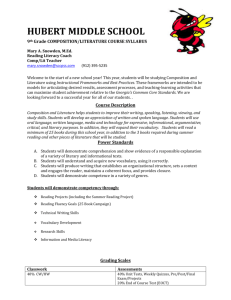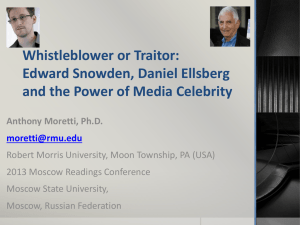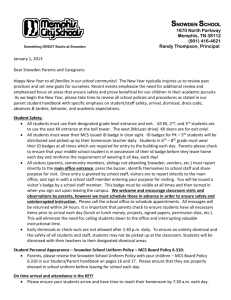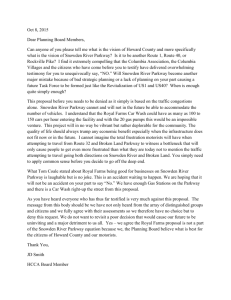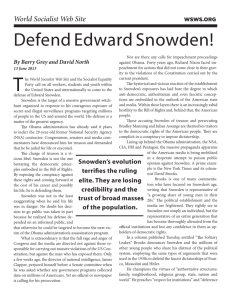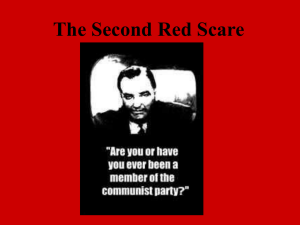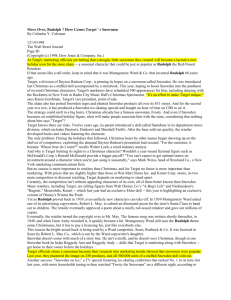Edward Snowden Labeled a Modern- day Alger Hiss
advertisement
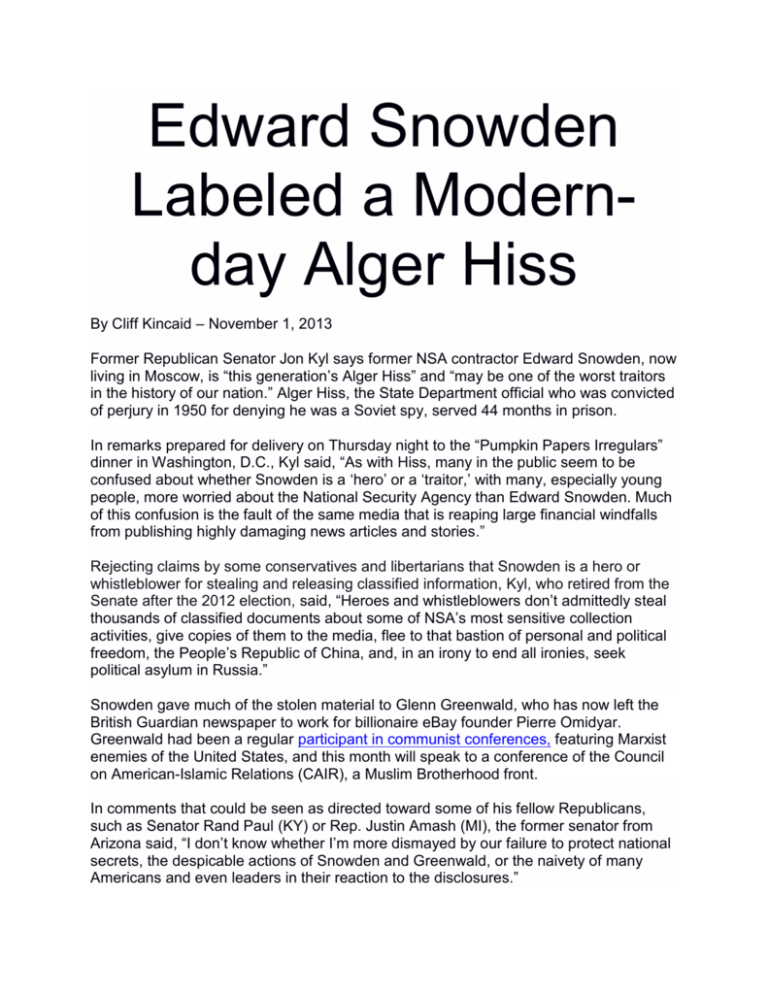
Edward Snowden Labeled a Modernday Alger Hiss By Cliff Kincaid – November 1, 2013 Former Republican Senator Jon Kyl says former NSA contractor Edward Snowden, now living in Moscow, is “this generation’s Alger Hiss” and “may be one of the worst traitors in the history of our nation.” Alger Hiss, the State Department official who was convicted of perjury in 1950 for denying he was a Soviet spy, served 44 months in prison. In remarks prepared for delivery on Thursday night to the “Pumpkin Papers Irregulars” dinner in Washington, D.C., Kyl said, “As with Hiss, many in the public seem to be confused about whether Snowden is a ‘hero’ or a ‘traitor,’ with many, especially young people, more worried about the National Security Agency than Edward Snowden. Much of this confusion is the fault of the same media that is reaping large financial windfalls from publishing highly damaging news articles and stories.” Rejecting claims by some conservatives and libertarians that Snowden is a hero or whistleblower for stealing and releasing classified information, Kyl, who retired from the Senate after the 2012 election, said, “Heroes and whistleblowers don’t admittedly steal thousands of classified documents about some of NSA’s most sensitive collection activities, give copies of them to the media, flee to that bastion of personal and political freedom, the People’s Republic of China, and, in an irony to end all ironies, seek political asylum in Russia.” Snowden gave much of the stolen material to Glenn Greenwald, who has now left the British Guardian newspaper to work for billionaire eBay founder Pierre Omidyar. Greenwald had been a regular participant in communist conferences, featuring Marxist enemies of the United States, and this month will speak to a conference of the Council on American-Islamic Relations (CAIR), a Muslim Brotherhood front. In comments that could be seen as directed toward some of his fellow Republicans, such as Senator Rand Paul (KY) or Rep. Justin Amash (MI), the former senator from Arizona said, “I don’t know whether I’m more dismayed by our failure to protect national secrets, the despicable actions of Snowden and Greenwald, or the naivety of many Americans and even leaders in their reaction to the disclosures.” Amash, who has partnered with far-left Democratic Rep. John Conyers (MI) in a legislative effort to undermine the surveillance programs of the NSA, was a featured speaker at an anti-NSA rally on October 26 in Washington, D.C., in support of Snowden. The event was organized by the George Soros-funded Free Press group. Senator Rand Paul jumped to Snowden’s defense as the disclosures were being made, even as the former NSA contractor was making his way to Moscow. Snowden has since been indicted for espionage and theft of government secrets. M. Stanton Evans The term “pumpkin papers” carries special significance for anti-communists and national security experts and analysts. It is a reference to microfilm copies of secret and stolen State Department documents given to Whittaker Chambers by State Department official Alger Hiss for transmission to the Soviet Union. They constituted absolute proof of Hiss’s guilt and role as a Soviet spy. Chambers broke with the Communist Party and wrote the classic book, Witness, about his conversion to the cause of freedom. The “Pumpkin Papers Irregulars” dinner is held every year to pay tribute to Chambers and those who follow in his footsteps. One of those honored this year was Diana West, author of American Betrayal, about communist penetration of the U.S. government during and after World War II. She described the depth of the communist penetration, comparing it to the modern-day Muslim Brotherhood infiltration of the Obama administration, and the purging from intelligence and training materials of any negative comments about Islam. Other speakers included author and veteran journalist M. Stanton Evans; Professor Paul Kengor, who wrote The Communist, about Barack Obama’s communist mentor; and Alfred S. Regnery, a former publisher of The American Spectator. Kengor paid tribute to William P. Clark, also known as “Bill Clark” or “Judge Clark,” a former top adviser to Ronald Reagan who passed away recently. A highlight of the evening was Kenneth deGraffenreid announcing the nominees for the shameful “Victor Navasky Award,” named after the publisher emeritus of The Nation and representing indifference or blindness to the evils of totalitarianism. Navasky had famously asked the question, in regard to the Alger Hiss case, “Espionage, is it really so wrong?” Among his various positions, deGraffenreid served as Senior Director of Intelligence Programs at the National Security Council from 1981-1987. While he introduced his remarks about the award and the nominees by saying, “this is all done in good humor,” his speech was a combination of jokes and serious warnings about national security problems and the people who had caused them. For example, taking a cue from former Secretary of State Hillary Clinton, who deflected questions about her responsibility for the deaths of four Americans at Benghazi, deGraffenreid listed other nominees for the Navasky Award and their anti-American activities, and jokingly posed the question, “What difference at this point does it make?” For this audience, it makes all the difference in the world. One of the runners up was “Sandinista and Cuba worshipper” Bill de Blasio, the Obama-backed Democratic “progressive” candidate for mayor of New York City. DeGraffenreid said de Blasio “…also has a soft spot for Islamic terrorists, vowing to dismantle the New York PD’s outstanding counter-terrorism program…” But deGraffenreid saved a lot of invective for NSA leaker Edward Snowden, another nominee, calling him a “vain and impudent product of the moral nihilism produced by the American left’s 50 year assault on America, its values, its achievements, and its strengths.” He said Snowden is “as damaging a spy as any we have seen in the long history of betrayal.” While it is possible the Obama administration could use the NSA for corrupt purposes against the American people, he said, “we must be crystal clear: Snowden is a premeditated calculating spy who defected to Russia and shared the secrets of America’s necessary intelligence capabilities—and by the way some of the crown jewels of our intelligence capabilities—with our enemies.” He said Snowden’s “leak a week stories” are designed to inflict “maximum damage to U.S. national security,” which is why he has become “a hero and rallying symbol of the international and home grown anti-American left.” DeGraffenreid predicted Snowden would one day meet with a terrible accident, perhaps by falling down a back stairway, “when he is no longer of use to the FSB,” the successor to the old Soviet KGB. Diana West Still, Snowden didn’t win the Navasky award. Instead, it went to Saul Alinsky, author of Rules for Radicals, who has inspired such figures as Barack Obama and Hillary Clinton. Obama himself had gotten the award two other years. Kyl, who for personal reasons could not appear in person to deliver his speech, served in a series of top leadership posts in the Senate. He explained in his remarks that the classified programs that Snowden has willfully disclosed “are legal and have been subjected to some of the closest legislative, executive, and judicial branch scrutiny of any intelligence program in our nation’s history.” He added, “If some of these programs had been in existence before 9/11, the attacks of that day may well have never happened. The foreign intelligence information from these programs has been used to disrupt terrorist plots against the United States and our allies.” “My hope is that we will be blessed with leaders with the uncommon courage of Whittaker Chambers; leaders who can help us bring Edward Snowden, our modern-day Alger Hiss, to justice,” Kyl said. “For as much harm as Hiss did to our country and to patriots like Chambers, we are just beginning to understand the breadth and depth of damage Snowden and his cohorts have done and are doing to our country. Our work is to testify that this is wrong and it must not be made worse by taking the easier political course” of making changes to the NSA in response to the media’s sensational but misleading coverage of the agency. The former senator said he is aware of legislative maneuvers to gut the NSA’ s surveillance programs by repealing or prohibiting Section 215 of the Patriot Act, which permits the bulk collection of phone call data in the possession of third party telecommunications carriers. One of those maneuvers, supported by Rep. Amash, is the so-called USA Freedom Act, also known as H.R. 3361. If that section is modified so that it can no longer be used to collect bulk data, Kyl said, “That would deprive the Intelligence Community of an important tool necessary to help identify terrorist networks or corroborate information about those networks from other intelligence sources.” He said that “while there are a lot of emotional and purely hypothetical concerns about this bulk data collection, the fact is, there is no infringement of my privacy or the privacy of anybody else arising out of this program.” He found it ironic that content collection is done by companies in the private sector which advise Internet users of products they may find interesting, based on previous buying patterns. “That is content collection by the private sector being acted upon, yet no one seems to be getting too upset about it,” he noted. Kyl also warned against other proposed changes to NSA programs that would “make it harder for our intelligence professionals to gather or share information than it would for an ordinary criminal investigator” solving crimes. He also said our enemies should not be given “better insight into our intelligence sources and method” so they can take countermeasures against us.
